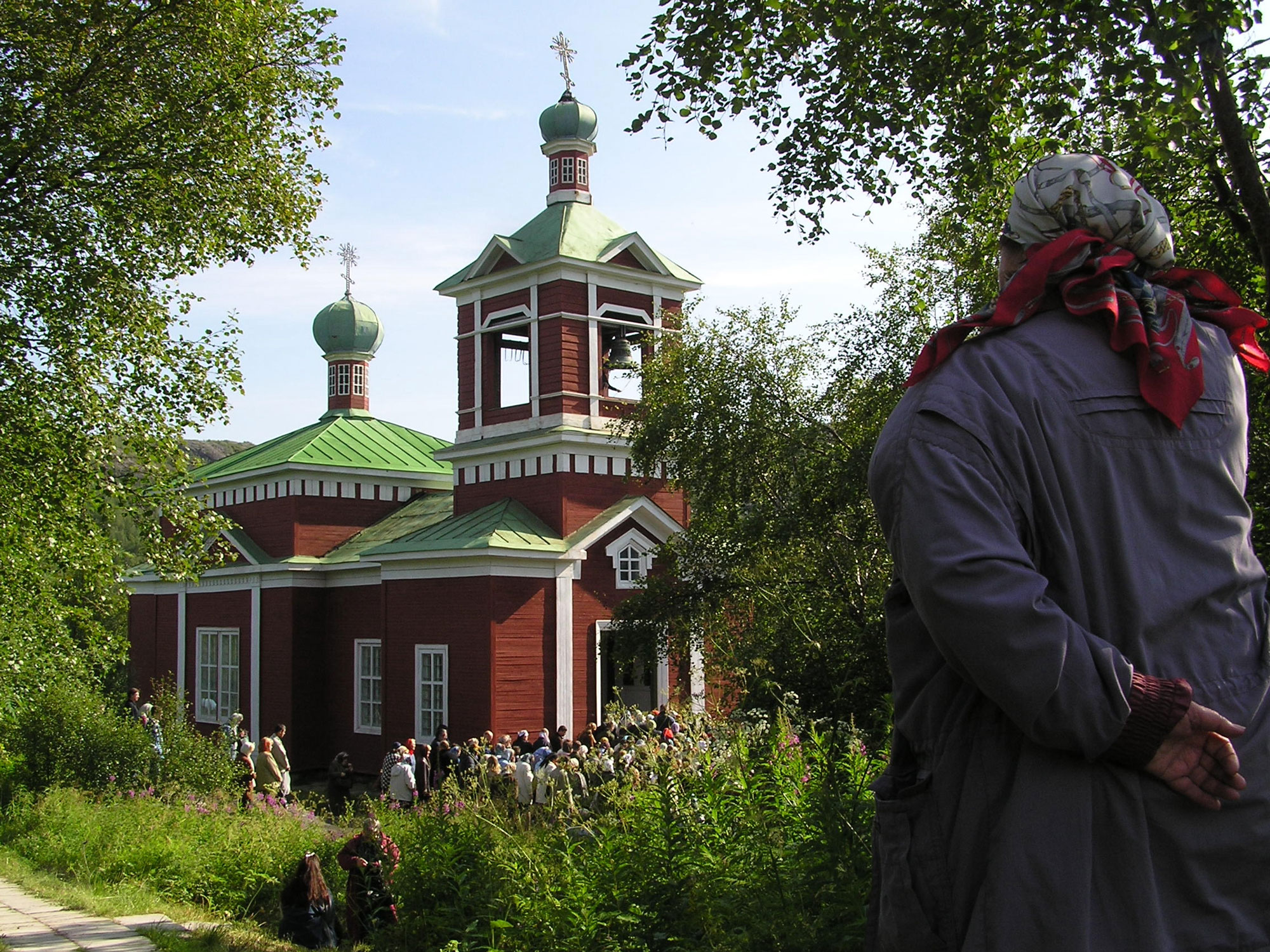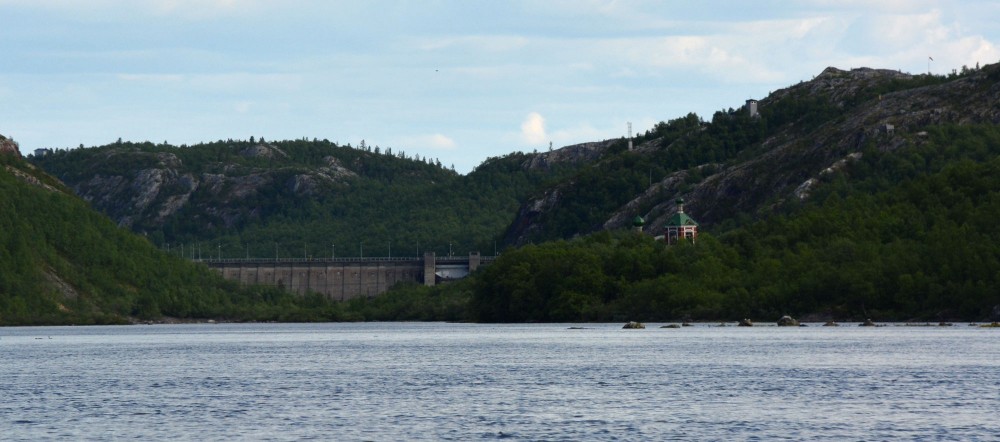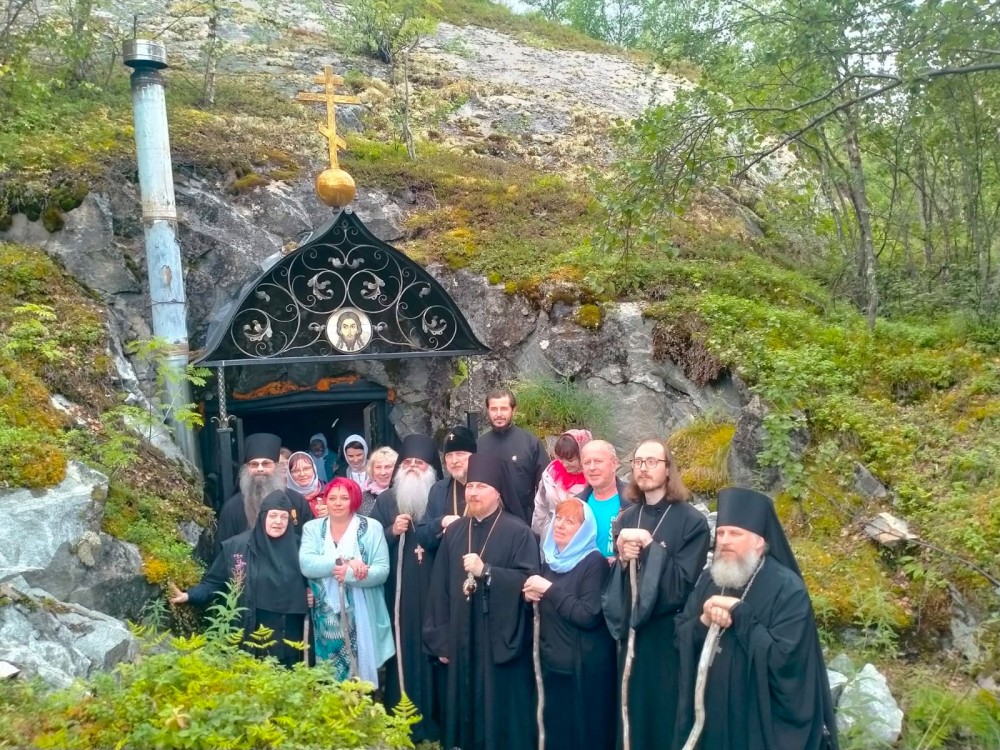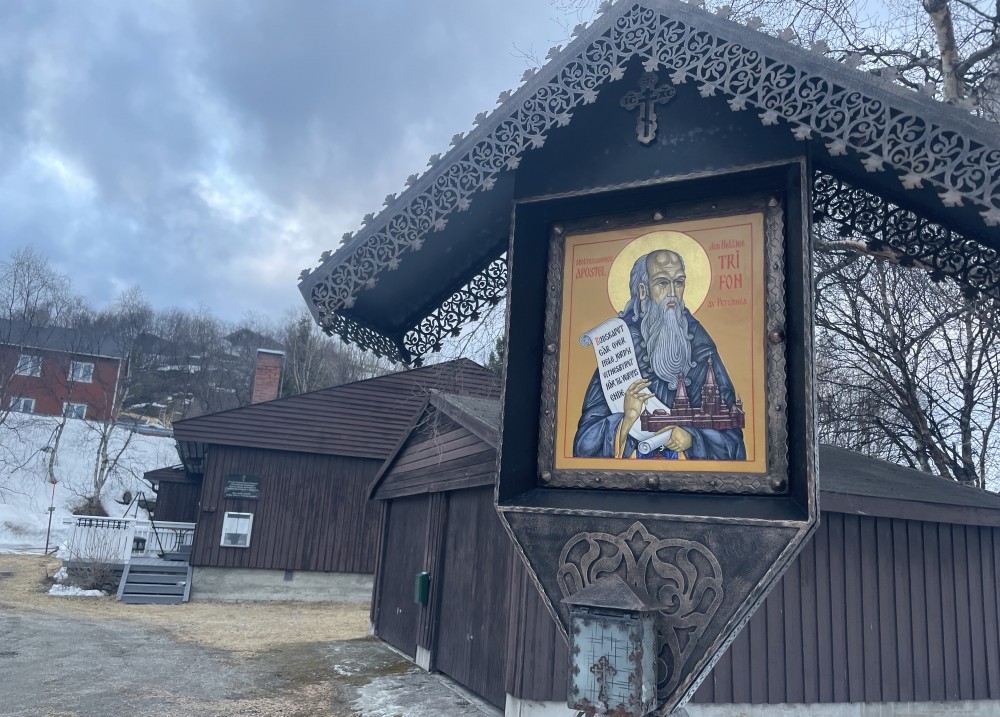“Here starts a hostile and unfriendly world.” Top Murmansk clergyman Mitrofan visits Boris and Gleb Church on border to Norway
The Russian Orthodox metropolitan that has called Russia's war against Ukraine a 'battle with Anti-Christ' pays a visit to the church located only few meters from Norway.
It was several years since the Metropolitan of Murmansk had visited Borisoglebsk, the Russian territory located like an exclave on the western shore of the Pasvik river.
For the Russian Orthodox Church, this is holy land. On the 4 square kilometre area stands the Church of Boris and Gleb, a sanctuary named after the two Orthodox saints that were killed in Kievan Rus in the 11th Century.

There were good reasons for Mitrofan to visit Borisoglebsk this year.
Russia is at war, and Mitrofan has made himself a leading spiritual proponent of his country’s bloody onslaught on the neighbouring country.
The war is a “sacred mission” and Ukraine and its supporters are not only “fascists” but they also represent “Anti-Christ,” Mitrofan has underlined.
“Orthodoxy is the only force of God left on earth, our Lord has no-one left but the Russian Orthodox Church,” he said shortly after Russia’s full-scale attack on Ukraine in early 2022.
In Borisoglebsk, Mitrofan could stand on the border to another neighbouring country, and reiterate his Orthodox world view and anti-western position.
“This is a holy site that stands on the border to another world, a world that is unfriendly to us,” Mitrofan said in an address to the local congregation. Among the people that had made it to the Boris and Gleb Church were many pilgrims from other parts of the region.
On site was also Tarasii, the archbishop of Severomorsk, and priest David, leader of the nearby Trifon Pechenga Monastery. Together, they all prayed for “peace on the land of Holy Rus and for the strong spirit of the Russian Armed Forces,” the Severomorsk diocese informs.
The visit to the borderland came just few days after Russia included Norway it is list of most unfriendly states.
According to Mitrofan and his fellow clergymen, the Borisoglebsk area is sacred ground and part of Rus, the ancient Russian Orthodox Slavic territory. And that is the way it will continue to be, Mitrofan said.
“The holy Rus has not disappeared, it exists in our hearts, in our blood. And we will hand it on to the next generation,” he underlined.

The clergyman praised the local priests that take care of the Church of Boris an Gleb. “Here is still light and good, everything is taken well care of, everything is preserved,” he said. He also underlined that the church of Boris an Gleb is well kept “not because it is an armed castle but because here lives the Holy Spirit.”
Before becoming a clergy, Mitrofan served on one of the ships sailing for the Northern Fleet. His diocese stretches not only across the Kola Peninsula, but also into Norway. In 2002, it was decided that the Russian Orthodox congregation in the Norwegian border town of Kirkenes was to be subordinated the metropolitan in Murmansk. Since then, leading clergymen from Murmansk have been frequent visitors in Norway.
Mitrofan haș himself hinted that the Norwegian municipality of Sør-Varanger is “Orthodox land.”
In his prayers ready load during his recent visit to Borisoglebsk, Mitrofan called for divine support for protection of Orthodox lands.
“Help us God to protect our borders both physically and spiritually,” he said, a video of the service shows.
The Boris and Gleb Church was built in 1873 and stands on the site of a chapel originally built by Russian Orthodox monk and missionary Trifon in the 16th Century. It is the only piece of Russian land situated on the western bank of the Pasvik river.
When the border between Tsarist Russia and the union state of Sweden-Norway was delineated in 1825, the Russian negotiators demanded that the Boris and Gleb Church and surrounding land should belong to Russia. In return Norway got a far bigger territory on the eastern side of the river.
The Borisoglebsk area is part of the Russian border zone and only people with special permission are allowed to visit the church.
Military restrictions are significant and a group of pilgrims from the town of Kandalaksha were reportedly unable to make it to this Sunday’s church service because they could not find a bus driver with the necessary papers from the FSB border guards.
Located in Kirkenes, Norway, just a few kilometres from the borders to Russia and Finland, the Barents Observer is dedicated to cross-border journalism in Scandinavia, Russia and the wider Arctic.
As a non-profit stock company that is fully owned by its reporters, its editorial decisions are free of regional, national or private-sector influence. It has been a partner to ABJ and its predecessors since 2016.
You can read the original here.

